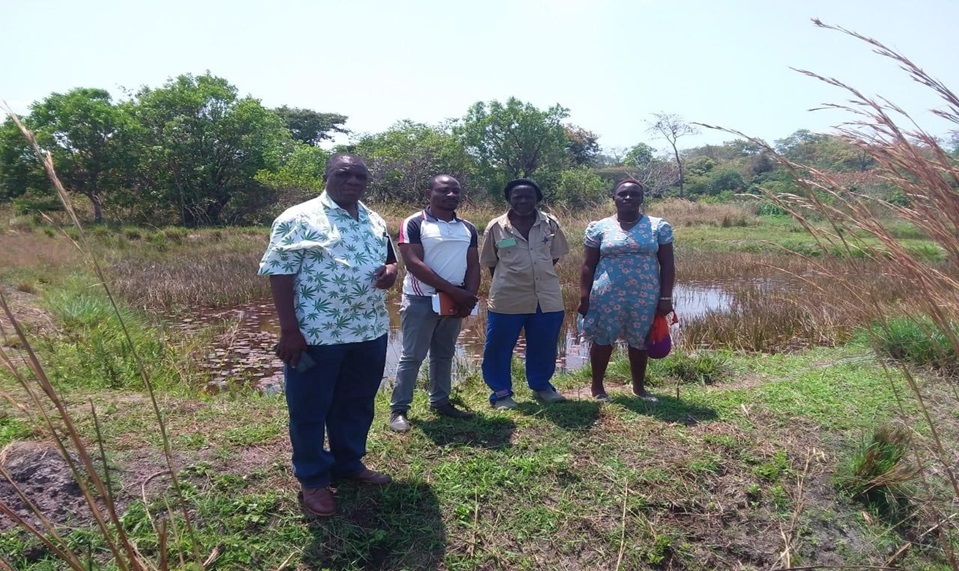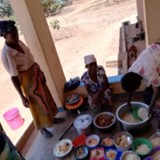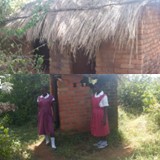
Boosting aquaculture in northern Malawi is possible. It pleasing that ASUD is among the most prominent non-state actors that promote and support aquaculture in Malawi since 2015. The key objectives of its engagement are to create alternative sources of income other than destructing natural resources such as forests for charcoal and firewood business. ASUD also aims at boosting food and nutrition security among the low resource families both in the urban and rural communities. Since its engagement, more than 1,500 fish farmers in Mzimba, Rumphi, Nkhata-Bay and Thyolo districts of Malawi are able to testify the triple benefits of aquaculture.
Sustainable Aquatic Food Project (SAF): 2024 to 2028 under GIZ support
The GIZ ‘Sustainable Aquatic Foods Project (SAF) is part of the special initiative “Transformation of Agriculture and Food Systems” (SI AGER) of the German Ministry for Economic Cooperation and Development (Bundesministrium für Wirtschaftliche Zusammenarbeit und Entwicklung, BMZ). The project overall objective is to promote recognition and use of sustainable aquaculture to transform agrifood systems in Malawi. ASUD is pleased to be part of the SAF project which is implemented in Malawi, Madagascar, Zambia and Uganda with financial support from GIZ. With its passion, expertise and experience, including its vibrant project team, ASUD will build capacity of more than 1000 fish farmers in
Rumphi, Mzimba and Nkhata-Bay districts through comprehensive training, follow-up loop and coaching. The project is expected to increase fish production in ponds from 50 Kg/year to average production of 65 Kg/year.
Sustainable Aquatic Foods Project (SAF) with Mayamiko Chaweza

Mayamiko Chaweza is a Project Officer, working with ASUD under SAF project. He is a professional in fisheries and aquaculture with more than 8 years of practical experience in the fisheries sector both in Malawi and Tanzania. He says, ‘’I am greatly ambitious to contribute significantly in boosting fish production in ponds. I will be
Mayamiko: set to extremely overwhelmed to see over 1000 fish farmers improved their income, food boost production and nutrition security in Mzimba, Rumphi and Nkhata-Bay districts by 2028. I am ready to train them, coach them, follow them and link them to profitable markets.
When I went around visiting farmers and their ponds at start, I noticed several significant challenges which included the following: – most farmers had ponds long time ago but they abandoned the business and ventured into other sectors.
Additionally, many fish farmers lack the necessary knowledge and skills in modern aquaculture techniques. Furthermore, there is a scarcity of essential resources such as quality fish feed, fingerlings, and proper equipment for fish farming to be beneficial. Above all, the infrastructure for fish farming, including ponds and water management systems, is often inadequate. Finally, many farmers face financial difficulties, limiting their ability to invest in fish farming.’’

One of the abandoned fish ponds in Nkhata Bay
Sustainable Aquatic Foods Project (SAF) with Bahat Kapito
Bahat Kapito is a Project Officer under SAF Project implemented by ASUD in northern Malawi. He is a professional in Fisheries and Aquaculture with more than 5 years of practical experience. He is a great trainer, coach and excellent at conducting follow-up loop with fish farmers. He is one of the team members who successfully implemented
Aquaculture Value Chain Project (AVCP) which was funded by COFAD/GIZ between

Bahat: 2019 and 2022. He says ‘’ fish farming is my field of play and I have no doubt to bring determined tohelp farmers fish farmers to joyful moments. I want them appreciate the choice they made to succeed venture into fish farming. They should reap what they invest in abundance. In my preliminary visits with farmers and their ponds in Rumphi, Mzimba and Nkhata-Bay districts, I noted that most farmers lacked data regarding fish farming operations.
Many farmers operate informally, without official records on quantities of inputs used such as feed and fertilizer, estimated costs of feed, number of fingerlings stocked, dates of stocking, stocking density, last date of harvesting and quantity Bahat Kapito, bringing hope to fish farmers in of fish harvested.’’ Farmers also complained of theft Mzimba and predation in ponds which led to frustration.Bahat gives hope to address all these issues through SAF Project.

Sustainable Aquatic Foods Project (SAF) with Thomas Ngwira

Thomas says, I have been a Project Manager for multiple development projects for more than 20 years including aquaculture. I have travelled to many parts of Malawi, other African countries, Europe and Asia on project matters. My experience and exposure will become a great tool in my role as a manager. Indeed, my eyes are on success only. I am assuring farmers that they will never regret for their venture into
Thomas: ambitious fish farming. I expect all the abandoned fish ponds to be revamped, improved, to achieve stocked and link farmers to better markets. Issue of feed and fingerling scarcity will
become history. My team is strong, reliable and failure is our greatest enemy.’’


